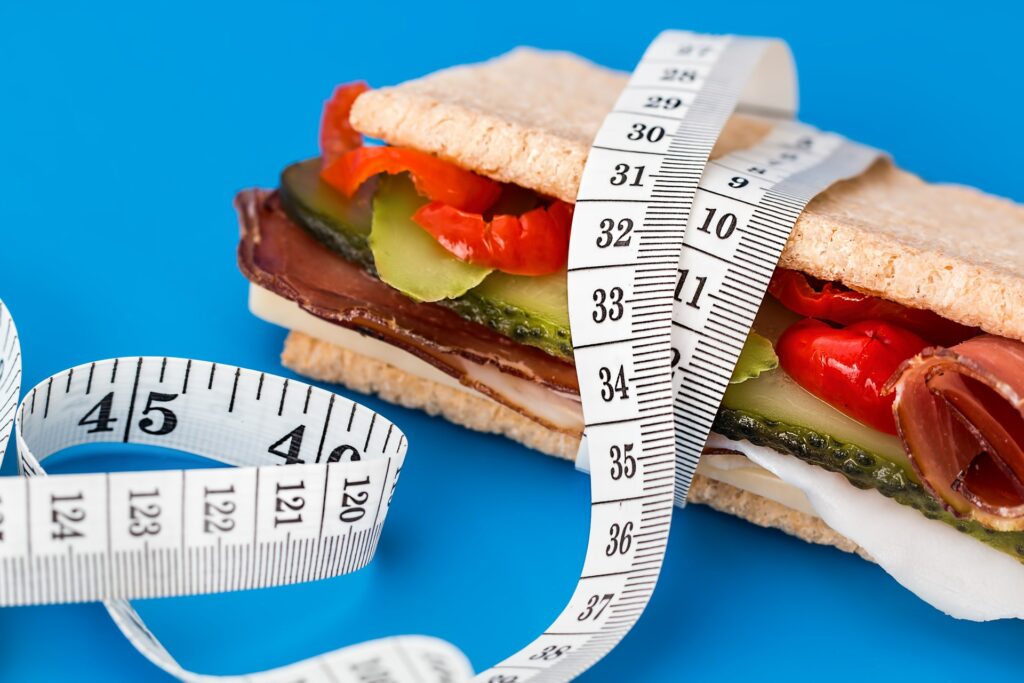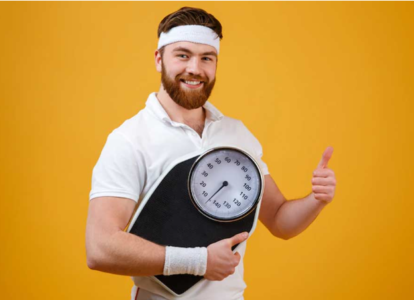Excess weight is associated with many health conditions such as type 2 diabetes, stroke, hypertension, and a host of other cardiovascular and systemic conditions. There are countless myths and unproven weight loss therapies on the web. Filtering through to find what actually works can be very daunting.
In this review, we have highlighted some of the best weight loss tips backed by science that you may want to consider.
The tips are broadly categorized into:
- Non-pharmacological weight loss tips
- Pharmacological weight loss methods

1. Non-pharmacological weight loss tips
These tips involve dietary measures, exercise, among other methods which do not involve the use of medication. Some of the common non-pharmacological methods of weight loss include:
a). Consumption of Black coffee & Green tea.
Coffee and tea drinking has often been associated with weight gain. In fact, more often than not nutritionists and dietitians would advise against consuming a lot of coffee and tea. That position still holds true, except with some exception.
Pure black coffee and green tea have significant health benefits, some of which are associated with weight loss. For instance, the two substances are rich in antioxidants like caffeine and catechin compounds that have been shown to induce lipolysis of adipose fat reserves.
However, this fat burning effect of caffeine and catechin compounds is often cancelled by high calorie additives like sugar. Now you know why your doctor normally advises against drinking coffee or tea; they assume you will naturally take your beverage with some sugar.
Quick Read: Rheumatoid arthritis management tips
However, if you do your black coffee or green tea without sugar or other high calorie additives then you have the best beverage for weight loss.
With that said, you can get black coffee or green tea, or their supplements, from a grocery or drug store near you.
b). Fasting
There’s still some healthy debate about the effectiveness of fasting in weight loss. While some hold the view that it’s not effective, others hold the opinion that fasting is a very effective weight loss method. No matter the side of the debate you support, this much is clear; as a weight loss method, intermittent fasting is as effective as continuous calorie restriction.
Quick Read: Best Acne treatment methods
Apart from intermittent fasting, another very effective type of fasting is One Meal A Day popularly called OMAD. As the name suggests, this fasting technique involves taking a single meal in 24 hours.
Though effective as a weight loss method, OMAD has also been associated with significant loss of muscle mass and malnutrition, especially if done for an extended duration. The method is best suited for users with a BMI of 30 or more.
Quick Read: How to prevent hair loss due to alopecia
c). Boost your dietary protein intake
High protein diet has been shown to stimulate metabolism significantly. In fact, one study found that starting your day with a high protein meal increases your daily metabolism by up to 100 calories. That shaves more than 400 calories off your daily diet leading to significant weight loss.
Eating high protein breakfast has also been found to reduce food craving. According to one study, it was established that a 25% increase in daily protein consumption cuts food craving by up to 60 percent. That means not only your snacking intervals but also the portion sizes will reduce significantly.
Proteins are broadly classified as animal based or plant based. Some common animal based protein sources include pork, chicken, eggs, beef, etc. Examples of plant based protein sources include beans, green grams, etc. Apart from these, you can also increase your protein intake by using supplements such as whey protein.
d). Drink water before meals
How exactly does water help with weight loss? Here’s how. Drinking water before meals has been found to boost metabolism by up to 30%. Furthermore, water taken before meals leads to intake of far fewer calories.
How it does that is everyone’s guess- by reducing empty stomach volume. It is recommended to drink water at least 30 minutes before meals. According to one scientific study, it was established that dieters who drink water before meals have a better chance of shedding belly fat compared to those who do not drink water.
Quick Read: Best anti-aging supplements
Water is also essential in most digestive pathways. That’s, the more hydrated, the better the process of digestion and the better your weight loss efforts.
e) Glucomannan and probiotic supplements
Glucomannan is a natural fiber that’s often used in many supplements and other health products. Its mechanism of action is two fold. First, it induces satiety by sitting in the gut for longer.
That way, glucomannan helps cut your daily calorie intake by giving you that feeling of fullness hence limiting food intake. The longer term effect of this is weight loss because of reduced eating cycles or food portions.
Secondly, glucomannan fiber also has a high water retention capacity. This ability is also associated with its ability to induce satiety which leads to hastened weight loss process due to reduced portion sizes and eating cycles. You can order glucomannan supplements online or from your local pharmacy.
Probiotic supplements contain bacteria associated with many health benefits to humans. One of the common uses of probiotic supplements is in weight loss. Their mechanism of action is thought to be by stimulating the burning of fats.
However, note that some probiotic products have been associated with weight gain. This is often the case with dairy products. Therefore, it’s important to talk to your doctor or pharmacist about probiotic supplements for weight loss.
That said, you can get your daily dose of probiotic supplements from convenient drug stores or order online.
f). Limit consumption of sugary drinks
Energy drinks, fruits drinks, soft drinks, refreshments, however you want to call them, these products often have a lot of sugar added for taste. It’s that sugar that makes them unfit for use, especially for persons struggling with weight.
Apart from making you fat, sugar is also associated with many health conditions such as diabetes, heart conditions, allergies, etc.
It’s advisable to avoid sugary drinks as best you can. Numerous scientific studies on the effect of sugary drinks on human health have highlighted weight gain as one of the effects. According to one study, it was established that sugary drinks account for 60 percent of child obesity incidences in the US alone.
In the same study, it was established that among obese kids who were put on a no-sugar diet for a month, there was significant progress towards weight loss. Clearly, limiting sugar intake leads to a significant reduction in weight.
Besides, weight loss, low or no sugar intake is your ticket to healthy living with minimal health problems.
g). Stick to a balanced diet
Balanced diet means watching or regulating how and what you eat. It’s different from dieting in the sense that the latter is not only ineffective but also hard to sustain as a weight loss strategy.
With that said, it’s always important to eat meals rich in all the essential nutrients but in measured proportions. Eat more fruits, vegetables, & proteins and less of oils and carbs. Also limit snacking between meals and if possible, stop it altogether.
Try hard to eat no more than 3 meals a day. The less often you eat the less weight you add. According to a recent research study among obese patients in the US, many confessed to routine snacking after and between meals.
Lastly, eating healthy also means reducing your portion sizes. Yes, you heard that right, large portion sizes is a major cause of weight gain. If you do only three meals a day but are still struggling with excess weight then chances are that you’re eating heavier than you should.
If you can reduce your portion sizes and still eat healthy, you’re definitely going to see a positive impact in your weight loss journey going forward. One of the first steps towards this is using smaller cooking appliances, plates and cups.
Also, always remind yourself to serve very little portions at parties and other get-together meetings.
h). Eat more chilli pepper
Capsaicin, the main active compound in red and black pepper has been shown to induce metabolism and reduce food craving thus leading to weight loss in the long term. In part, that explains why persons who are under-weight are often advised against eating pepper.
Note however that prolonged pepper consumption may lead to tolerance to capsaicin hence causing little or no response to its beneficial metabolic effects. To prevent this, it’s recommended to take a couple of days or weeks break from using pepper once in a while.
i). Work out often
The need to exercise often can not be emphasized enough. Exercise is not only good as a weight loss strategy but an integral part of maintaining good mental and physical health.
And you don’t have to over-strain yourself with heavy weight lifting, part in extreme sports, or hit the gym for extended periods in order to lose weight. No, that’s for body builders and anyone else who’s in the modeling business.
If you’re only interested in losing weight and staying fit, normal cardio exercise will do the trick. A little jogging, walking, stretching for an hour or two daily is just enough. Just be sure to combine it with healthy eating and stay true to the course for as long as you want and the results are definitely going to come.
j). Increase your consumption of fiber
Fiber has a lot of health benefits. In light of weight loss, fiber improved water retention in the gut and this is thought to reduce appetite. Persons who eat adequate amounts of fiber are far less likely to indulge on late night snacking.
Apart from that, fiber also improves peristalsis, the natural movements of the gut that keeps food and related products moving within the gut. Less fiber in your diet has been associated with complications such as constipation, flatulence, blotting, etc.
In order to increase your fiber intake, reduce your consumption of processed foods, eat more whole grains, vegetables & fruits.
You can also use fiber supplements available from your local pharmacy or a convenient store near you.
k) Avoid metal stress and loneliness
Always try to be in the company of loved ones. Loneliness has a way of making you want to eat, more so if you’re indoors. If you’re dealing with some stressful life situations, try sharing with friends or maybe consult a therapist.
Stressed individuals often tend to want to eat a lot. You don’t want to fall victim to this bad habit.
l). Stay busy
Last but not least, always strive to busy yourself with something. If you’ve got a lot of spare time, try to learn something new. For instance, you can learn new skills like blogging, coding, vlogging, biking, or even enjoy gaming with friends.
Idling and staying indoors makes you always want to snack.
In fact, countless studies have shown that most obese patients have struggled with too much loneliness and staying idle indoors while eating.
Whenever you get the temptation to eat even when you’re clearly full, just disengage from your idle mode by doing or learning something.
2. Pharmacological weight loss methods
For the morbidly obese, pharmacological weight loss methods may be recommended b a doctor. Note that, this option is only used when a person’s weight poses significant health risks, or when exercise and dietary changes haven’t proved useful.
With that being said, here are some of the common pharmacological weight loss methods.
i). Appetite suppressants
If you have a problem taming your food cravings, then you may want to talk to a nutritionist or physician about it and he/she will recommend appropriate appetite suppressants to use.

This pharmacological method works by reducing desire for food. If used as prescribed, appetite suppressant medication has the potential to cause significant weight loss in the long term.
Note however that prolonged use of appetite suppressants may lead to malnutrition and associated complications. And like all medications, there are a few side effects that you may have to deal with.
ii). Weight loss medications
If dietary changes and exercise aren’t causing any significant reduction in weight, then your doctor will most likely recommend weight loss medications. Though this information is not for you to use for ordering medication by yourself, suffice to say you might just want to know some of the drugs you’ll be using.
Common examples of weight loss medications include Orlistat, cetilistat, Lorcaserin, Sibutramine, Rimonabant, metformin, Exenatide, Liraglutide, semaglutide, Phentermine/ topiramate, Naltrexone, bupropion, etc. As is the case with all medications, weight loss drugs have some side effects. Some of these include fatty stool, rashes, headaches, muscle and joint pains, etc.
iii). Bariatric surgery
Weight loss surgery is also called bariatric surgery. The procedure involves removing or changing part of a person’s gut, mostly stomach or small intestine, in order to reduce food intake or calories absorption. There are two types of bariatric surgery:
iv). Gastric bypass surgery
Involves enabling food to bypass the midsection of the small intestine where most absorption occurs. The process is recommended for persons with BMI of 30 or more. It’s worth noting that gastric bypass surgery is often associated with some complications including mineral and vitamin deficiencies. Doctors often put the patient on some supplements or medications to address this problem.
iv). Gastric sleeve/ band surgery
This procedure involves making the stomach smaller. Like the name suggests, it makes use of a gastric sleeve or a gastric band. Gastric sleeve/ band surgery reduces stomach volume significantly. Meaning, the patient’s food intake capacity will be significantly impacted and this ultimately leads to weight loss.
Quick Read: Pregnancy and birth control
v). Hormone treatment
Weight loss using hormone treatment involves harnessing the power of gut hormones. Though not yet in clinical use, hormone therapy is one non-surgical weight loss method that scientists are extensively researching on currently.
vi). Beiging (browning) of white fat cells
Beiging is a term coined by scientists to describe the browning of white fat cells. See, it has been established that white fat cells store calories hence are responsible for weight gain. Brown fat cells, on the other hand, have been found to burn calories leading to production of heat.
Scientists are considering browning of the white fat cells by trying genetic reprogramming methods. If it succeeds, it will be another breakthrough in weight management using a non-pharmacological method.

























